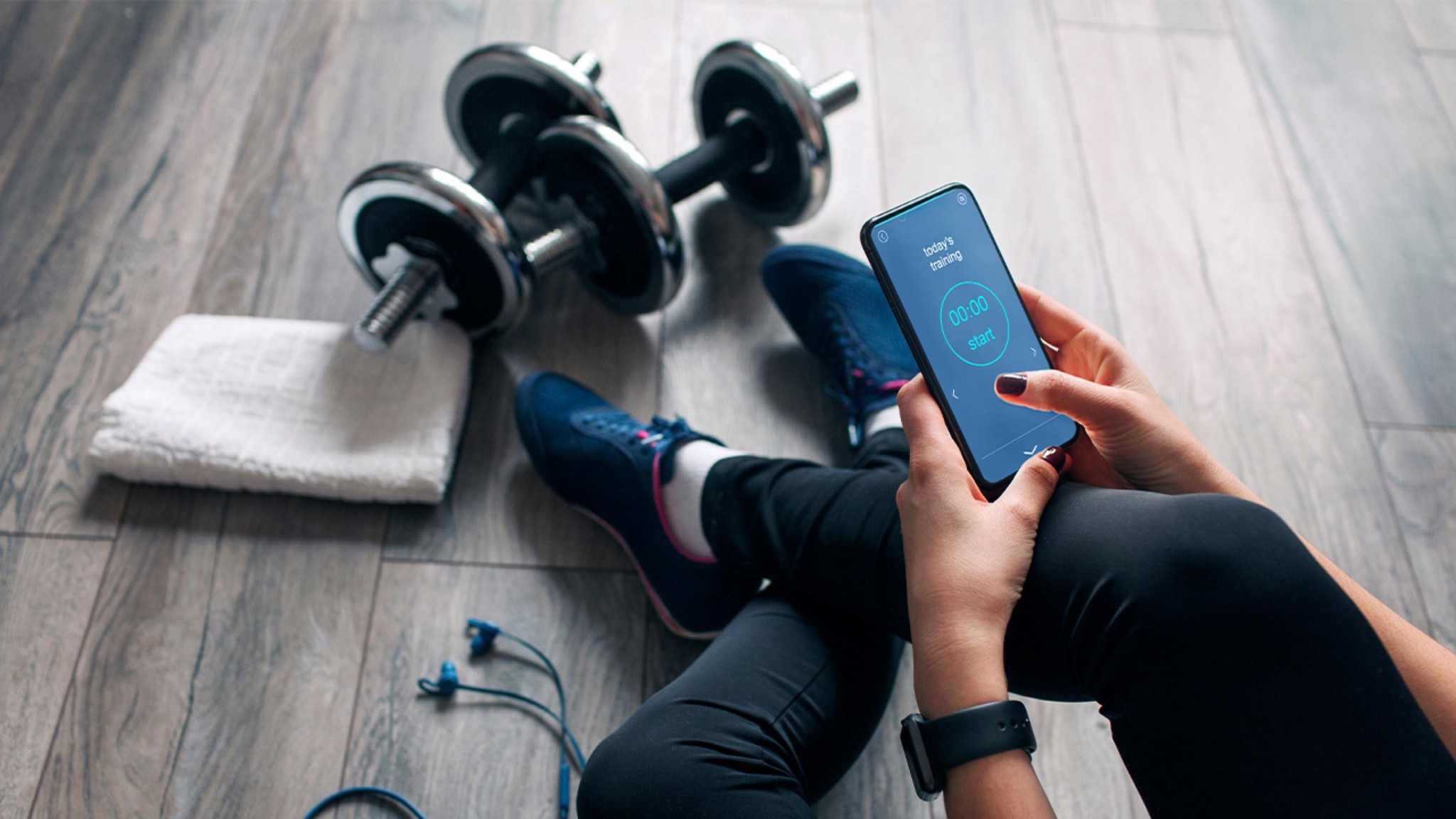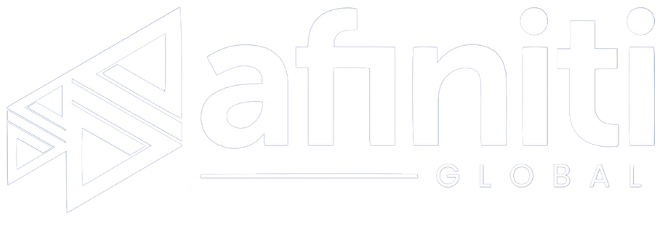Post-pandemic, people have started taking their health more seriously than ever, and as a result, fitness apps are in continuous demand, providing users with the assistance they need. In London, the adoption of these apps has been particularly notable.
Today, the fitness industry stands on the brink of another revolution, driven by artificial intelligence, AR & VR, and offering a comprehensive view of health. Afiniti Global is at the forefront of this transformation, ensuring that fitness apps meet the evolving needs of users in London and beyond.
At this time, many businesses are stepping forward to provide users with top-class fitness apps. To beat your rivals and stay on top, we at Afiniti Global believe that innovation and the latest trends are essential.
Let’s delve into the blog post that shapes the landscape of fitness apps, offering key insights and future trends set to transform health and wellness in London.
Fitness Apps: A Market Overview
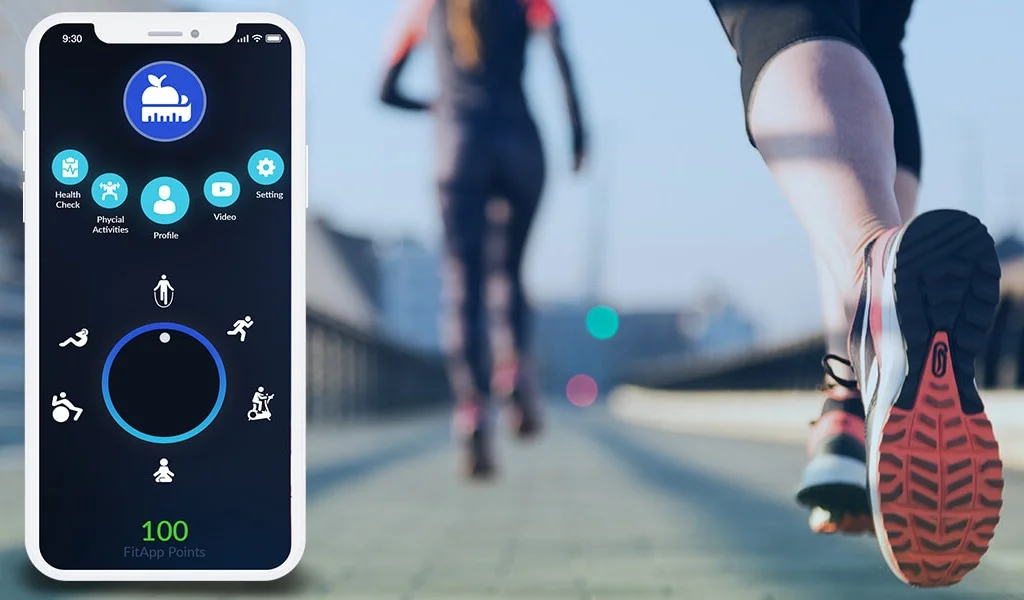
The adoption of health and fitness applications saw a significant rise during the pandemic, leading to a booming mobile fitness app industry. More businesses and healthcare organizations in London and beyond are now investing in health and fitness app development. Let’s explore some amazing facts about fitness and health apps.
This data shows that the healthcare sector is undergoing a rapid digital transformation, with mobile apps playing a crucial role in this revolution. Additionally, various healthcare tracking apps have created numerous opportunities for businesses to hire reputable app development companies that offer healthcare software development services to their clients.
In a city like London, with its diverse and dynamic population, the demand for effective and innovative fitness solutions is particularly high. Instead of just uncovering the opportunities mobile fitness apps provide, we will first examine the different types of fitness apps that are dominating the mobile healthcare applications industry.
Glimpse into Fitness Market Statistics
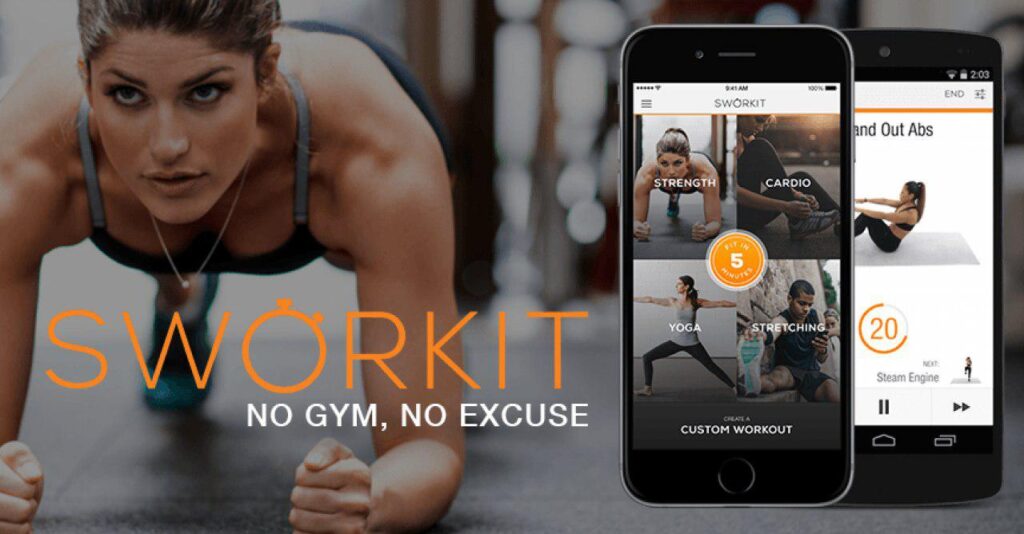
Market statistics provide crucial insights into any industry.
Therefore, delving deeper into fitness app market statistics is more necessary than ever. Let’s look at some key stats:
- Virtual reality and AI personal trainers are emerging as exciting trends.
- Wearable devices like smartwatches and fitness trackers are projected to fuel sales, with expected shipments reaching 240 million units by 2025.
- User engagement with fitness apps is anticipated to grow by 35% in the next two years.
- Revenue generated by fitness apps is likely to reach $15.7 billion by 2026.
At Afiniti Global, we believe that given the current market boom, there’s significant untapped potential waiting to be explored through advanced trends. Knowing these trends will help you avoid common fitness app development mistakes and leverage useful innovations to ensure your app stands out, especially in a dynamic market like London.
With that, let’s discover these trends in the next section.
Types of mobile apps that rule the fitness app industry
There are a plethora of health tracking apps available in the market, and with increasing demand, more apps are being created and launched each day. Depending on their purpose, the types of fitness mobile apps that dominate the healthcare and fitness industry include:
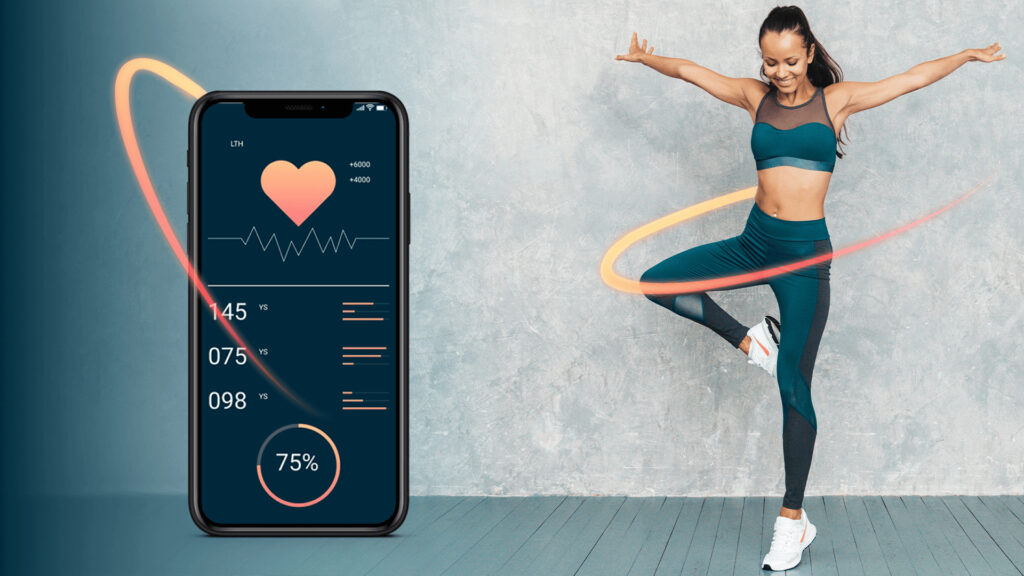
Workout Apps
These mobile fitness applications come loaded with workout plans, training sessions, and other content in different digital formats to enable users to work out at their respective places. If you are planning to dive into the workout app sector, check out our latest blog on how much it costs to build a custom workout and training app to understand the costing and the factors affecting it in detail.
On-Demand Personal Trainer Apps
The on-demand fitness app allows users to hire a personal trainer in real-time and take required steps towards getting a fit body and shape. A minimalist fitness app design can make your on-demand personal trainer app a success. Hiring personal trainers under one dashboard directly impacts usability and retention time on health tracking apps. You can implement multiple healthcare app features in your personal trainer application to enhance the user experience.
Fitness Tracking Apps
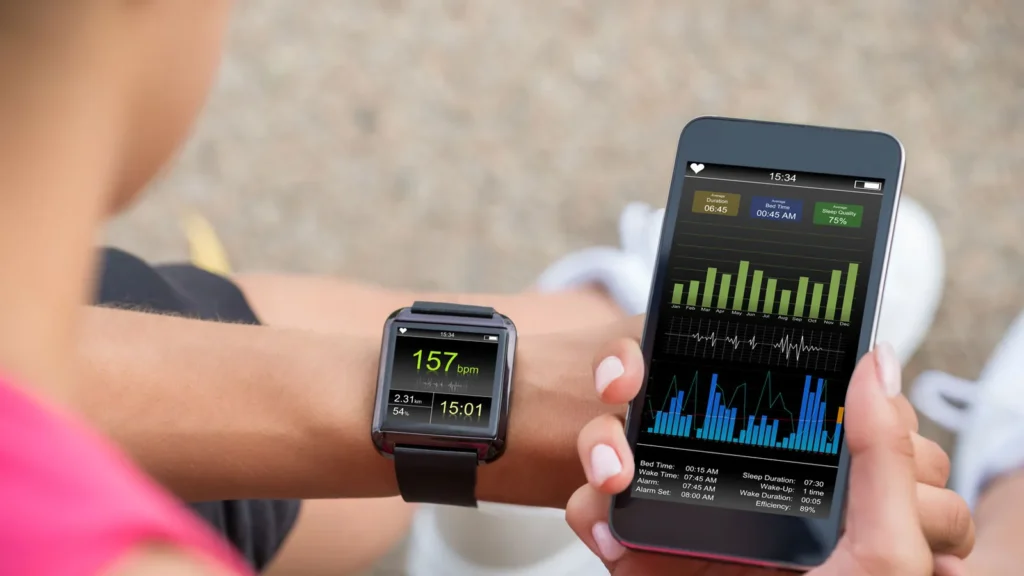
Collaborated with wearables, NFC, and other mobile healthcare technologies, these health tracking apps enable users to track their health and fitness metrics in real time. Eventually, users can take the right steps towards a healthier lifestyle.
Nutrition and Diet Apps
These mobile fitness applications, as depicted by their name, empower users with solutions on what to eat and when for healthier and disease-free living. Such apps help users maintain a healthy lifestyle by suggesting the right amount of carbs and proteins to intake in a day. The diet and nutrition app further helps users improve their diet by eating healthily, tracking overall progress, adopting new healthy habits, etc. One of the most sought-after features of these fitness apps is a built-in support system that helps users deal with daily changes better and more confidently.
Doctor-on-Demand Apps
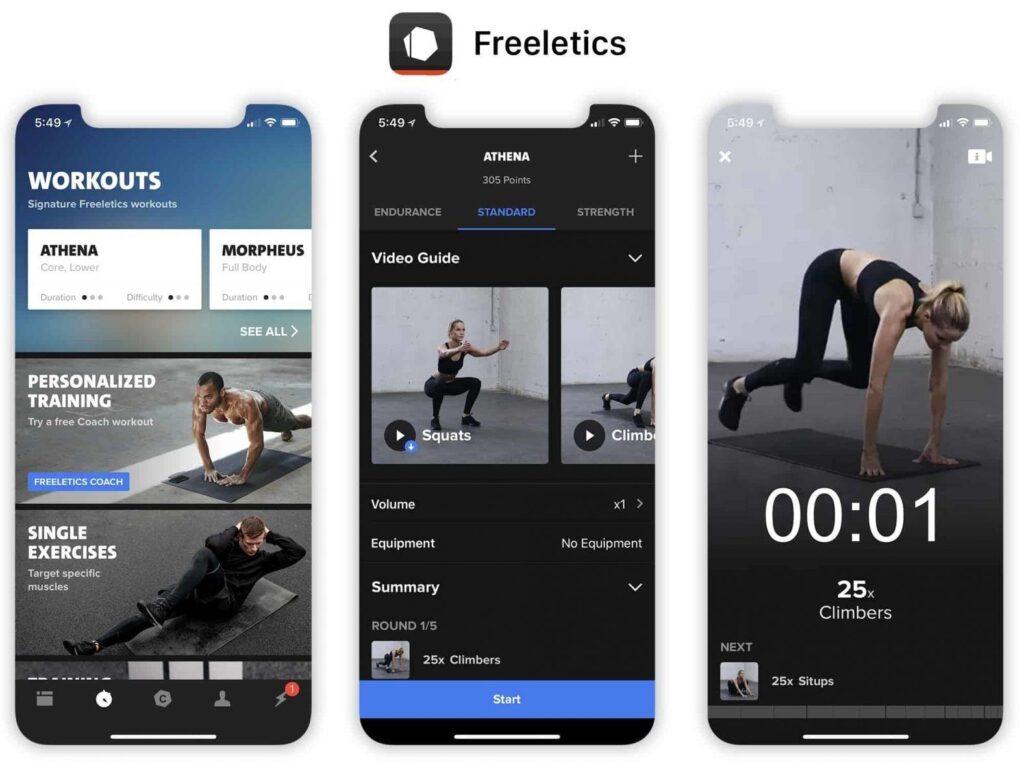
The doctor-on-demand apps, like ZocDoc, provide users with an opportunity to search for and hire doctors in real time using geolocation technology. Doctor-on-demand apps are the future of the healthcare domain as they offer various benefits to users, such as virtual doctor consultations from the comfort of their homes, less paperwork, more convenience, and improved patient outcomes.
Medication Tracking Apps
Medication tracking health mobile apps make it easier for users to keep track of their medicines in real time. They help users follow their prescriptions and not miss a single dose. Users can easily set alerts, and reminders, and maintain a schedule of their daily dose consumption.
Clinical Assistance Mobile Apps

These types of medical mobile applications help organizations streamline all associated processes and focus on delivering better services to their patients.
Afiniti Global is committed to advancing the development of these innovative health and fitness apps, especially in dynamic markets like London. Now that we know about different options in the arena of mobile health app development, let’s turn towards the benefits of mobile health apps.
With that, let’s discover these trends in the next section.
Fitness App Trends to Look Forward To

The fitness market is flourishing, undergoing a remarkable transformation that emphasizes customized well-being and innovative technologies.
You might be curious about the trends that are set to further revolutionize fitness apps.
To provide you with a clear picture, we have compiled some of the top fitness app trends that will undoubtedly impress you.
1. Hyper-Personalization With AI

The future of fitness will see a significant transformation through hyper-personalization powered by AI. This trend is increasingly leveraged in fitness app development. Imagine an app that analyzes your activity data, biometrics, and fitness goals to create a personalized training program tailored to your needs and preferences. Sounds cool, right? This is exactly what we will see in the future.
To achieve this, some technologies will be of help:
Machine Learning Algorithm
The fitness app world is on the verge of a revolution with machine learning development. Slowly and steadily, it has become a top fitness app trend poised to grow bigger. Machine learning algorithms analyze your activity data and fitness goals to adapt your workout routine based on your performance and activity. This way, users can achieve their fitness goals more efficiently.
Biometric Integration
Imagine a workout experience that not only connects your activity data and goals but also aligns with your real-time physiological state. This is where AI and biometric authentication come together. AI incorporates biometric data like heart rate, muscle activity, and facial expression, providing a broader picture of your health. This will be especially helpful for people with chronic health conditions.
Genetic Predisposition Analysis
Still in its early stages, but promising. Genetic predisposition analysis evaluates your inherited risk of developing certain diseases. If this gets the green light, it will be a breakthrough. Future fitness apps could leverage your genetic makeup to customize exercises according to your body’s strengths and weaknesses. This trend will enhance user engagement, as AI personalization ensures users are constantly challenged with effective and enjoyable workouts, maximizing their chances of achieving their fitness goals.
2. Integration With Wearable Devices
Wearable device technology has shown tremendous potential. Fitness apps are increasingly integrating with wearable devices such as smartwatches, fitness trackers, and heart rate monitors to gain insights into steps taken, heart rate, and calories burned. For those with fitness goals in mind, this data is incredibly useful. It allows users to:
Track Progress: Monitor improvements in performance and fitness metrics over time.
Identify Trends: Gain insights into workout patterns and adjust plans accordingly.
Set Realistic Goals: Set achievable goals based on accurate data about activity levels and fitness capabilities.
3. Gamification: Making Fitness Fun and Rewarding

Without a touch of fun, fitness routines can feel monotonous. Traditional workouts can be enhanced by incorporating game-like elements, which are particularly helpful for those needing constant motivation and encouragement. Here are some ideas to integrate:
Points and Rewards
Offering points for completing workout challenges or achieving fitness goals adds a layer of fun to your fitness app. It also motivates users for healthy competition, keeping them engaged with a sense of accomplishment. Although this might increase your fitness app cost, it will surely add value.
Reward System
Some apps incentivize healthy habits by offering rewards for completing workouts, reaching goals, or participating in challenges. These rewards could be discounts on fitness gear, meal plans, or other purchases.
4. Virtual Training and Remote Coaching
Post-pandemic, there is a surge in virtual training and remote coaching solutions, which is becoming a fitness app trend. This allows for virtual workout classes, live coaching, and on-demand training content. As remote fitness becomes standard, businesses can capitalize on this trend by creating interactive experiences that rival in-person workouts. The impact? It removes geographical barriers and makes fitness accessible to everyone, according to their needs and schedules. It also provides users with the flexibility to continue their fitness journey.
5. Data Privacy

breaches have exposed the personal information of over 8 million people worldwide, according to a report by Statista. As breaches become a huge problem, data and app security will remain a primary concern for the future of every business. Fitness apps handle a lot of user data, including personal details, making them prime targets for fraudsters. The solution is to implement robust security measures like strong encryption and secure data storage to protect user information and prevent data breaches. Data privacy is thus a top fitness app trend.
6. Focusing On Holistic Health and Wellness Ecosystems
The current trend in fitness apps is turning towards a more holistic approach to health. It’s no longer just about chasing fitness goals; instead, people seek a comprehensive wellness ecosystem. The landscape of fitness is undergoing a beautiful transformation through this revolution. Consumers increasingly seek a well-rounded approach to wellness, beyond physical fitness. This includes mental health apps that address stress and anxiety, breathwork apps promoting focus and relaxation, and a plethora of other health-focused applications.
Afiniti Global is committed to advancing these innovative health and fitness app trends, especially in dynamic markets like London. Now that we’ve explored the future of fitness apps, let’s delve into the next section to find a partner who can utilize the power of these trends to create an exceptional user experience.
Benefits of Mobile Apps in Healthcare and Fitness
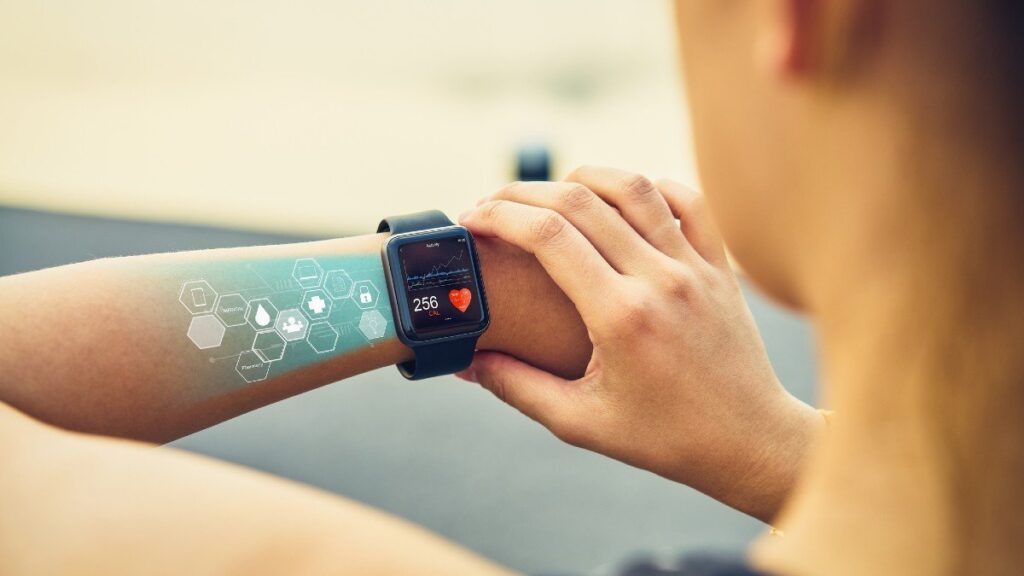
Mobile apps are reshaping interactions between users and healthcare professionals, offering transformative benefits in the healthcare and fitness sectors. Here’s how mobile apps are enhancing the industry:
Higher Accessibility and Affordability
With the rise of various healthcare and fitness apps, finding a yoga class or gym near you is no longer a challenge. Additionally, you no longer need to invest in expensive personal trainers to stay healthy. A suitable mobile health app can meet your needs, eliminating barriers related to distance and cost.
Real-Time Tracking
Unlike traditional methods, mobile healthcare applications enable real-time health data tracking. This capability allows users to make timely adjustments to their workout plans and other health-related activities, leading to more informed decisions about their well-being.
Hassle-Free Search for Doctors and Hospitals
Advanced healthcare apps streamline the process of finding doctors and hospitals based on geographic location. Some apps even facilitate direct communication with healthcare providers and provide details about hospital facilities, making healthcare more accessible.
Time Saving

Mobile apps designed by leading health and fitness mobile app development companies
Mobile apps designed by leading health and fitness mobile app development companies, such as Afiniti Global, offer users the convenience of clearing doubts via chat or video calls, rather than visiting the gym or medical service providers. This approach saves time and provides more efficient outcomes.
Smoother Medical Operations
Mobile healthcare apps not only provide real-time experiences for consumers but also help streamline medical processes. This improvement leads to increased productivity and a better quality of service in the healthcare sector.
Improved Communication Levels
Fitness apps keep users connected with their trainers and health organizations around the clock, facilitating real-time interactions and actions. This continuous connectivity enhances user engagement and service efficiency.
Increased Motivation

By leveraging gamification, personalized push notifications, and other motivational elements, fitness apps create a positive environment that encourages users to spend more time on the platform. This approach enhances user acquisition and retention rates.
Examples of Fitness Apps
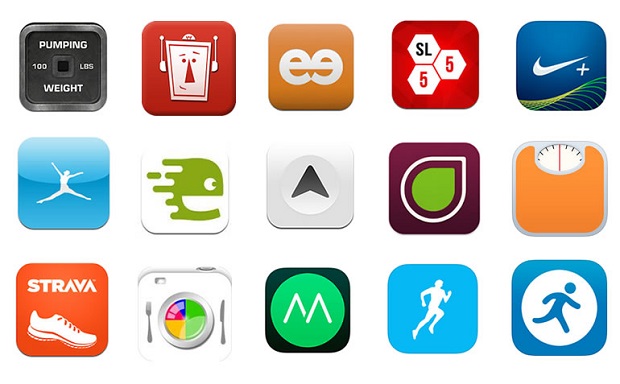
Here are some leading fitness apps in the market, known for their significant user bases and competitive features. Many offer free versions, while others may require a subscription to access premium features.
Must-Have Features of Fitness Apps
To stand out in the competitive fitness app market, integrating key features is essential. Here are some crucial features for achieving high user engagement and retention:
User Personalization

Personalization is vital for any mobile health app. Collecting user data such as age, weight, and height allows the app to create customized nutrition and workout plans. Utilizing technologies like artificial intelligence can enhance personalization, making the app more effective in meeting individual needs.
Device Integration
Many users utilize multiple devices to track their fitness activities. Your app should offer seamless synchronization with various devices, including wearables and smartphones, ensuring users can access their profiles and training programs across all platforms.
Activities Summary
This feature provides an overview of users’ fitness activities over different time periods, helping them evaluate progress and set long-term goals. Apps like Strava and Fitbit offer weekly reports to track and review workout summaries.
Goal Setting

Fitness apps should allow users to set specific goals and track their progress.
Fitness apps should allow users to set specific goals and track their progress. This feature helps users monitor their achievements and stay motivated by visualizing their progress towards their targets.
Tracking Metrics
Tracking metrics is crucial for assessing user efforts. Metrics such as set repetitions, calories burned, and distance covered help users measure progress and stay motivated. Integrate relevant tracking metrics based on your app’s objectives.
Push Notifications
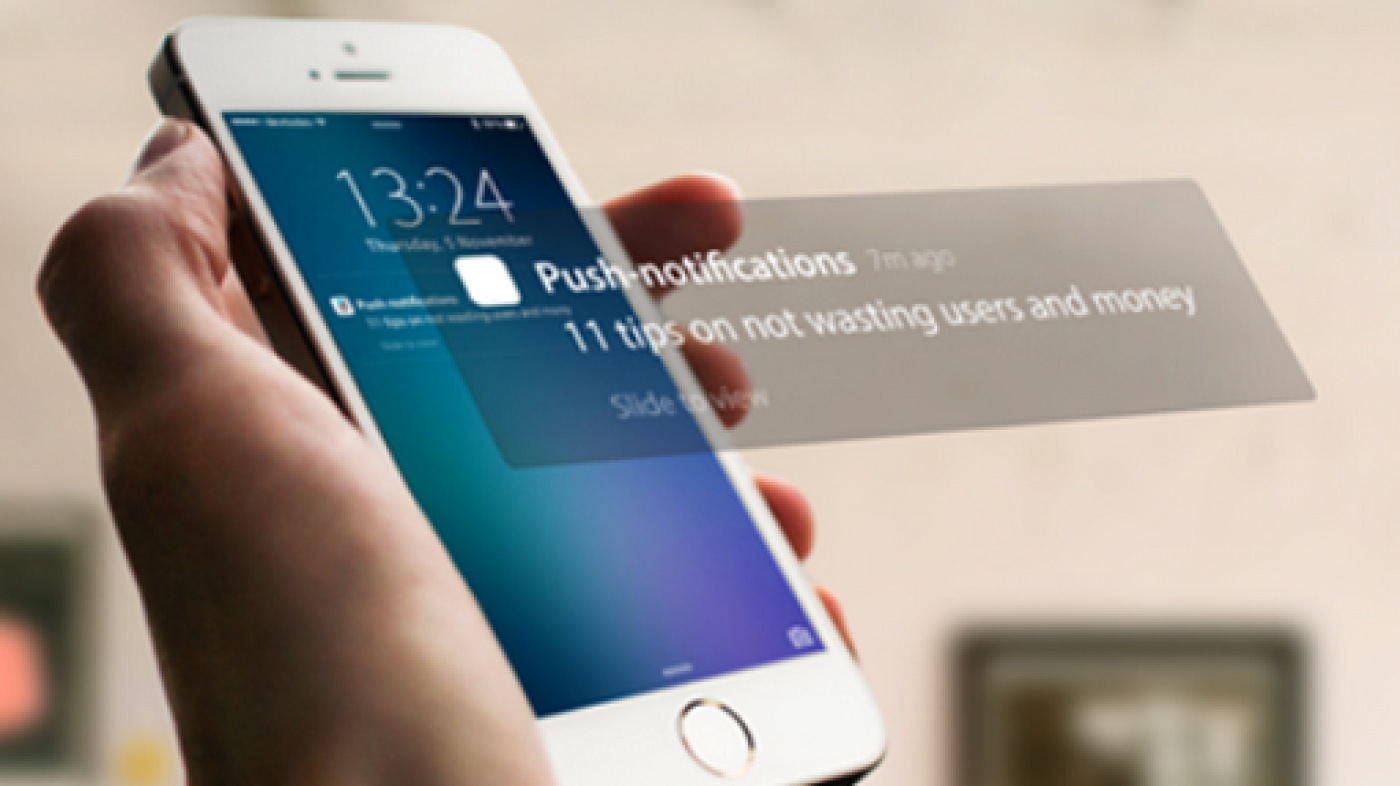
Push notifications increase user engagement and app usage.
increase user engagement and app usage. Use them to send reminders for workouts, medication, meal times, and other important events. Marketing automation tools can help personalize these notifications based on user behavior.
Social Sharing
Users enjoy sharing their achievements on social media. Integrate social sharing features to allow users to share their progress and interact with others, enhancing engagement and extending your app’s reach.
Community
Building a community within your app fosters motivation through competition and support. Features like friend connections, interest groups, and activity updates can create a sense of belonging and drive user engagement.
Gamification
Incorporating game-like elements into your app can make fitness routines more enjoyable. Features like levels, badges, and rewards encourage users to stay active and engaged with the app.
Video Tutorials
Offering video tutorials helps users understand exercises and techniques better. This feature caters to visual learners and can enhance the user experience by providing clear, instructional content.
Get Service Assistance

When planning mobile fitness app development, consider both the features and the technology stack required to build a robust and secure application.
Tech Stack Required for Health and Fitness App Development

Selecting the right technology stack is crucial for developing an effective healthcare mobile app. Here are some technologies to consider:
Artificial Intelligence (AI)
AI can enhance app functionality by offering personalized recommendations, detecting medical conditions, and providing reminders. AI-powered apps can improve user experience by delivering tailored solutions.
Blockchain

Blockchain technology provides secure, decentralized data management
Technology provides secure, decentralized data management. It enhances data security, allowing patients greater control over their information and protecting against cyber threats.
Cloud Computing
Cloud computing offers a flexible and scalable platform for app development, reducing costs and enabling easier updates. It supports efficient data management and enhances app functionality.
IoT (Internet of Things)

IoT technology enables real-time data collection from medical devices and sensors
Technology enables real-time data collection from medical devices and sensors. It supports monitoring and tracking, helping users and healthcare professionals stay informed about health metrics.
Big Data Analytics
Big data analytics can provide valuable insights into patient behavior and treatment effectiveness. It helps in creating apps that improve patient care and outcomes by analyzing large volumes of data.
Augmented Reality (AR)

AR enhances user experience by overlaying digital
AR enhances user experience by overlaying digital information in the real world. It can provide visual instructions, virtual tours, and interactive content, improving user understanding and engagement.
As mobile apps continue to revolutionize the healthcare and fitness sectors, partnering with a company like Afiniti Global can help you leverage these technologies effectively. Their expertise in mobile app development ensures that your application meets the highest standards of functionality and security, catering specifically to the London market and beyond.
How can Afiniti Global help you with health and fitness app development?
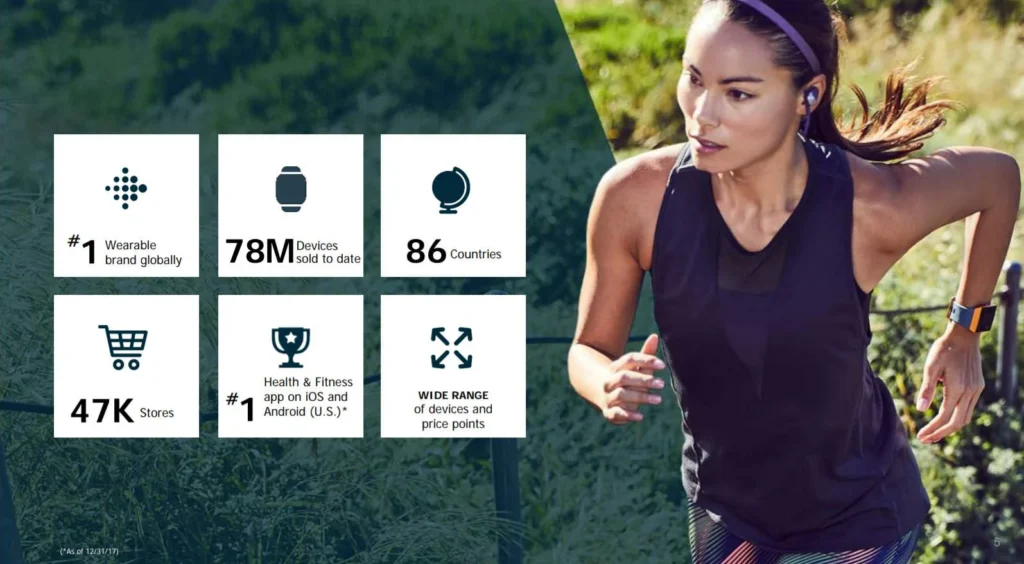
Afiniti Global, a leading app development company, brings together a team of highly skilled developers and healthcare solution experts to create top-tier fitness applications. With a proven track record and partnerships with various healthcare brands, we specialize in delivering innovative and scalable solutions.
For example, we assisted our client Healthe People in developing an advanced platform that enables users to create comprehensive healthcare records and find medical caregivers for their loved ones.
If you’re seeking similar expertise, get in touch with our specialists. We’ll guide you through the entire development process and ensure a seamless experience for your app development journey.
Conclusion
As we look to the future, the healthcare and fitness industry is poised for remarkable transformation. Organizations are increasingly venturing into fitness app development, aiming to serve a broader audience remotely. Embracing cutting-edge technologies such as cloud computing, blockchain, big data, and artificial intelligence will enable businesses to create tech-enabled apps that offer enhanced personalization and efficiency.
For those seeking to build an exceptional health and fitness app, partnering with a reputable app development company like Afiniti Global is crucial. With our extensive experience and expertise in the industry, we ensure that your fitness app integrates seamlessly with your existing business processes, providing a top-notch solution tailored to your needs.
Based in London, Afiniti Global is well-positioned to support you in navigating the evolving landscape of healthcare and fitness technology, helping you achieve your goals with confidence.
